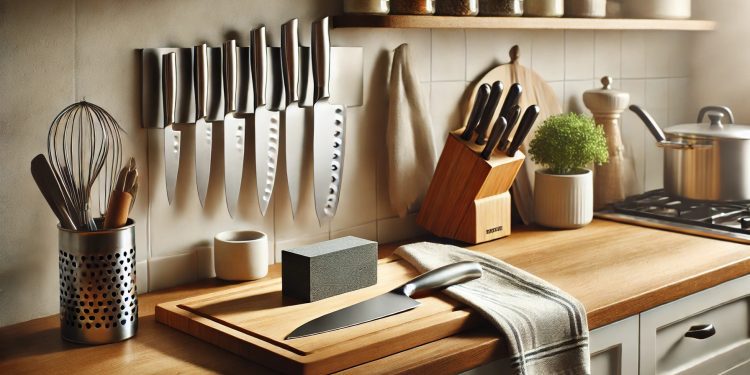When preparing a special dinner, it can be a massive inconvenience to see your knives aren’t cutting at as easily as they used to. Maybe they’ve become dull or even started to develop rust. This is when most people wish they had taken better care of their knives.
Thankfully, you can do this now to avoid these issues from occurring. This post lists four of the easiest ways to effectively care for your kitchen knives.
Clean Your Knives After Each Use
Some foods that are chopped, diced, and sliced regularly can be quite acidic. These include lemons, onions, and tomatoes. If the blade isn’t cleaned immediately after use, it can corrode over time. This is even more important for hard-carbon steel knives.
Most households have stainless steel kitchen knives, and stainless steel contains specific alloys, including at least 10.5% chromium, that can help prevent rust. Chromium reacts with oxygen to form a protective barrier that makes stainless steel resistant to rust and corrosion. However, cleaning your knives with warm, soapy water is still essential to avoid rust patterns from developing.
You should also avoid air drying your knives after cleaning them; this can cause germs to build up and rust to begin. Use a hand or kitchen towel to wipe the knife dry as soon as it has been washed.
Use a Wooden Cutting Board
Although other cutting boards, such as glass or marble, might be more aesthetically pleasing, these are not easy on the blades. These types of chopping boards will cause knives even those from a Japanese knife set, to become dull much faster. Instead, you should opt for an alternative, like a plastic or wooden cutting board.
The best chopping board will be made of end grain wood; end grain cutting boards are crafted using glued pieces of wood with the grain vertical to the board’s surface. They are typically made from cedar, cherry, maple, and other hardwoods and manufactured for butcher blocks.
If you cannot buy a wooden cutting board, you can buy plastic or rubber boards instead. However, you must ensure these boards are made of high-quality materials.
Sharpen Your Knives Regularly
Dull kitchen knives can be dangerous to use. They require more pressure to be applied, which can eventually cause you to cut or injure yourself. Thankfully, a whetstone can be used to sharpen the blade. This should be done at least twice a year to ensure your knives stay in working condition.
Although a honing rod can be used for some softer knives, knives made of very hard steel will require sharpening stones. Harder knives, like Japanese-style knives, are preferred by professional chefs as the sharper edge lasts longer.
Store Your Knives Correctly
If knives are not stored correctly, they can break, chip, or become dull, especially beside other utensils. Blade covers can prevent this by protecting the knives from damage.
If knife blade covers are not an option, a kitchen knife block would be used instead. The blade should face upward when stored in stock or on a magnetic knife rack to avoid injuries when accessing the knives.
By following the four caring tips listed in this article, your kitchen knives will remain in working condition for a long time.

















